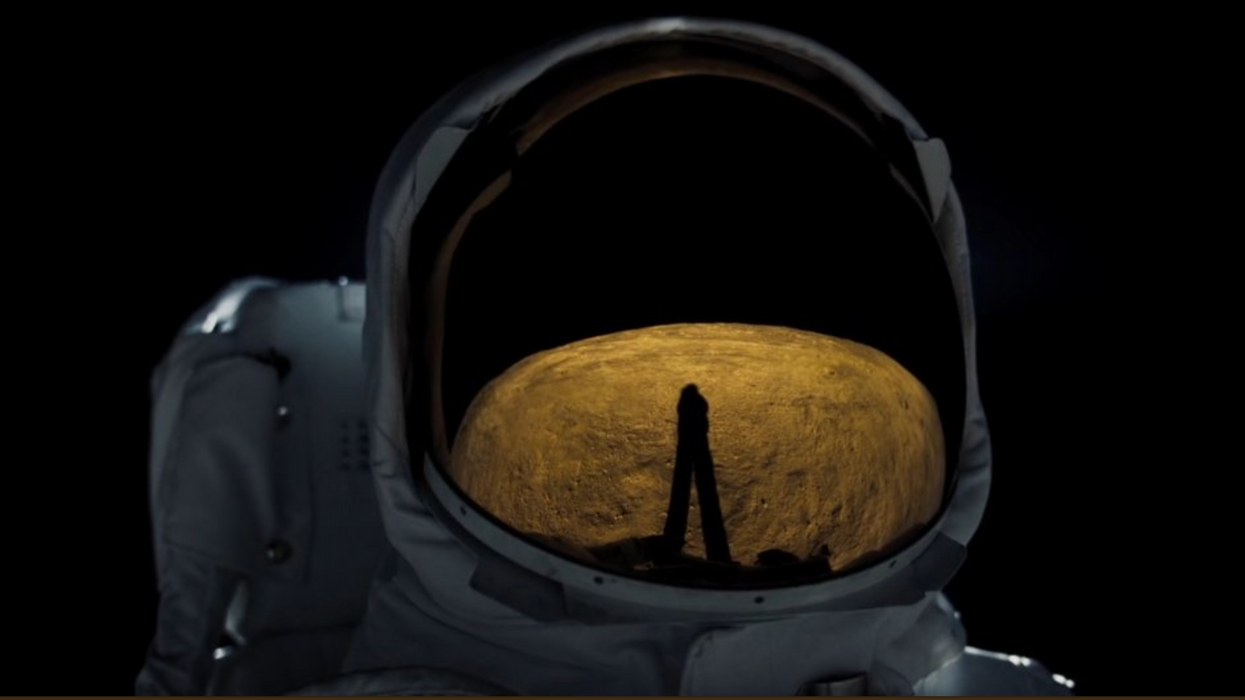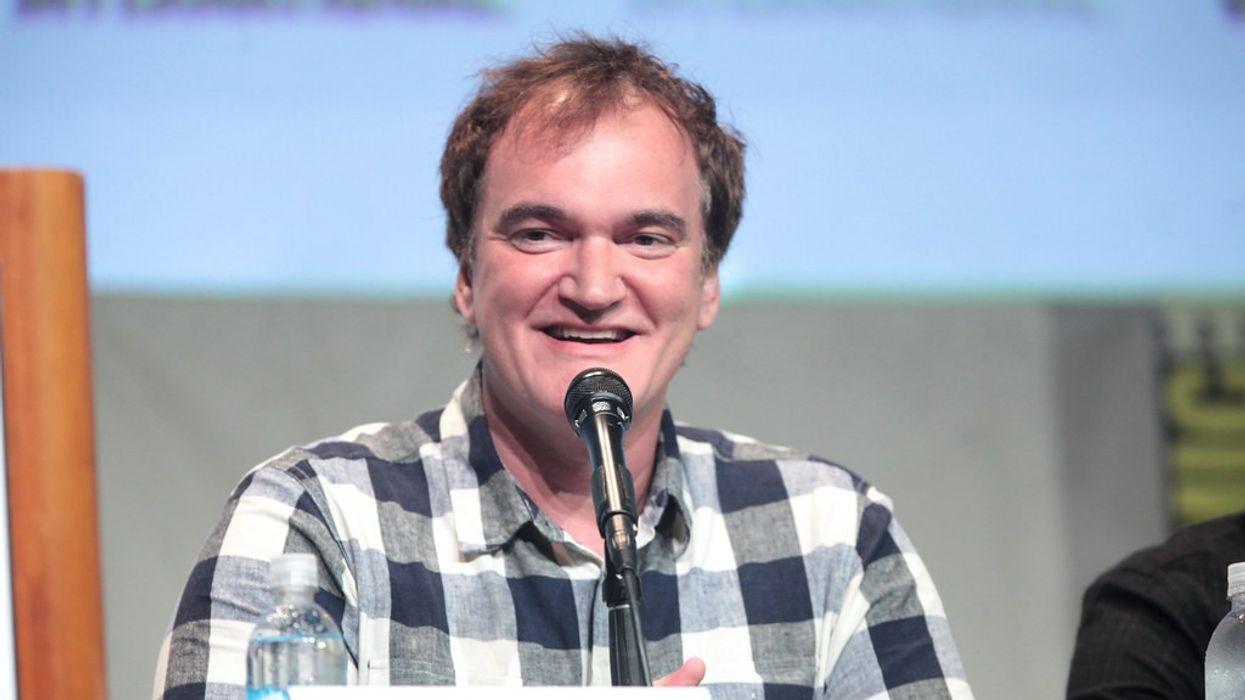Our 15 Most Popular Podcasts of 2018
Here are the standouts from an excellent third year.

While we made our bittersweet goodbye to Indie Film Weekly today, you can bet that our weekly interviews will continue to run strong in 2019. As we continued to cement our place in the top filmmaking podcasts available in 2018, we were granted access to a whole new tier of higher profile guests.
Names like Yorgos Lanthimos, Jeremy Saulnier, DANIELS and more popped up on the show this year, but what I truly appreciated about our program this year was just how popular our shows with the little guys (and gals) were. Our audience craves the knowledge of those that are going through similar struggles, and we've truly been able to put the experience of our guests onto a platform where others can learn from the successes and mistakes.
Take our two new limited series, The First Feature and The First Short, both complete breakdowns on the struggles that Ryan Koo and I went through on our respective first projects. We really wanted to communicate what we went through, in an attempt to better prepare you for the challenges you will most certainly face when it comes time to take on your own projects. Each series contained many of our top episodes of the year, but I only included our two best performers in order to highlight more of our great interview shows from 2018.
Thanks to you, we've garnered over a million and a half plays. Of course, we've got to give a special shout-out to our weekly listeners, who have subscribed to the Soundcloud feed and many more who have opted to get our episodes straight from the Apple Store, Google Play, Stitcher, or whatever podcast platform you choose to use.
We want to make this podcast the best as it can possibly be. Feel free to give us feedback, and be sure and tune in next year as we continue to increase our coverage (and perhaps even start up a few new shows).
Here are our best-performing episodes of the year:
15. How to Make a Short Film for Only $4.50
Guest: Tony Grayson (Allen Anders)
"I sat down with Grayson and talked about how he pulled off the shoot for such a minuscule budget, the value of casting aside preciousness in your work, and how a SXSW premiere led him to his next project, Allen Anders Live at the Comedy Castle (Circa 1987)." - Jon Fusco
14. How to Become a Top Notch Sound Designer with the Team Behind 'First Man'
Guests: Milly Iatrou Morgan and Ai-Ling Lee (First Man)
"Not many people with an interest in film have the direction to start pursuing sound at an early point in their career. It seems, rather, that through working on various projects they come to realize how powerful a tool sound really is and fall head-over-heels in love. If it's early enough in their career, there's plenty of work to be found and no turning back." - Jon Fusco
13. From Film School 'Failure' to Godard's Cinematographer: Fabrice Aragno on Working with Jean-Luc
Guests: Fabrice Aragno (The Image Book)
"When Fabrice Aragno went to film school, he was written off as a creator of meaningless images. What was the point of his thesis picture? Where was the emotion? These questions, however, didn't matter much to him, so he ignored them. What mattered was assembling work that he felt was sincere." - Jon Fusco
12. How Post-Production Makes or Breaks a Film, Part 1: The Editor's Process
Guests: Keiko Deguchi (We the Animals), Nyneve Laura Minnear (306 Hollywood) and Patrick Lawrence (Clara's Ghost)
"The difference between a film that has some good moments and a full-fledged, unhindered story hinges on how it's treated in post-production. That success starts with the delicate navigation of the editor." - Oakley Anderson Moore
11. Why You Should Edit Your Own Films
Guests: Irene Luzstig (Yours in Sisterhood) and Dominic Gagnon (Going South)
"To edit your own films or not to edit your own films: that is very often the question, especially for documentary filmmakers, where so much of the story is shaped in post-production." - Liz Nord
10. Jeremy Saulnier on Why Being a DP is More Fun than Being a Director
Guest: Jeremy Saulnier (Hold the Dark)
"There wasn't really a time when Saulnier's life didn't revolve around the camera. From making zombie flicks as a teen to starting a film collective in high school to making his way up the film ladder as a cinematographer, his experiences have been a constant education on the ways of film. And while he swears his days as a DP were 'more fun,' his artful visual touch is still very much present as a director." - Jon Fusco
9. How to Build a Score That Raises Your Audience's Expectations
Guest: Director Jonathan Watson, Composer Joseph Stephens (Arizona)
"We talk about how a great score can be used to influence your audience, the typical workflow of audio post-production, and how a composer can stand out in the biz." - Jon Fusco
8. How to Get a Vimeo Staff Pick with DANIELS, Kirsten Lepore, and Head Curator Sam Morrill
Guests: DANIELS (Swiss Army Man), Kirsten Lepore (Hi, Stranger), Sam Morrill (Vimeo)
"The landscape for short films is changing quickly. One might say we're entering a 'Golden Age,' where content is being taken seriously and you can even make money off of a five-minute video... if you get the right eyes on it." - Jon Fusco
7. One Hundred Different Ways to Get Your Film Funded
Guests: Hayley Pappas, Caroline von Kühn, Leah Giblin
"If there’s one thing every film has in common, it’s that somewhere, somehow, there was money involved, but the road to getting a film financed is more varied and complex than ever. Fortunately, our guests on this episode are three of the brightest in the business, and each of them works with an organization that helps finance and support low-budget independent films." - Liz Nord
6. How to Shoot a Feature Film for Only $7000
Guest: Alejandro Montoya Marín (Monday)
"If you are experiencing the gnawing self-doubt and endless list of must-haves that can sometimes hover around the making of a feature film, this conversation is good medicine." - Oakley Anderson Moore
5. What a Festival Programmer Looks for in a Short Film
Guests: Claudette Godfrey (SXSW)
"Claudette and I run through exactly what it is that attracts a festival programmer to a certain short. She also gives us a rundown of the things a filmmaker should focus on when submitting, as well as what they should attempt to avoid when working on a project they hope will be selected." - Jon Fusco
4. DP Roundtable: How to be the Cinematographer Your Director Needs
Guests: Claudia Raschke (The Price of Everything, RBG), Shana Hagan (Generation Wealth, Inventing Tomorrow, Won’t You Be My Neighbor?, Lenny), Ashley Connor (The Miseducation of Cameron Post, Madeline’s Madeline), and Mia Cioffi Henry (Cheer Up Baby)
"In our wide-ranging conversation, the talented group discusses the benefits of switching between docs and features instead of sticking to just one, how to be the cinematographer your director needs, what to do when a production starts to go off the rails, why cinematography is a people’s business, and much more." - Liz Nord
3. How Do You Make a Film with Zero Experience? The First Short: THE GUY [Episode 1]
Guest: Jon Fusco and Adam Gundersheimer
"We identify the key crew you'll need to get started and how to get them on your project, how to create a proper lookbook, what to plan for on a location scout, strategies in collaborating with your DP in pre-production, and how to obtain the best gear for your project." - Jon Fusco
2. How Do You Know Which Idea to Pursue? The First Feature: AMATEUR [Episode 1]
Guests: Ryan Koo and Erik Luers
"In this episode, we get into three questions you can ask yourself to help decide which movie to make and how failure can be more instructive than success." - Ryan Koo
1. Why You Need to Stop Making Excuses and Make a Short Film
Guests: Short film directors Pete Lee (Don’t Be A Hero), Diane Obomsawin (I like Girls), Shaandiin Tome (Mud), Kamau Bilal (Baby Brother) and Anna Margaret Hollyman (Maude)
"To say that it’s tough to play your short at Sundance is an understatement. In 2018, 69 shorts were picked from 8,740 submissions. While there’s no simple formula on how to make a short film that will get into Sundance, programmer Dilcia Barerra told No Film School that there is one important guiding principle for filmmakers that do get in: be authentic to your reality and your style." - Oakley Anderson Moore











